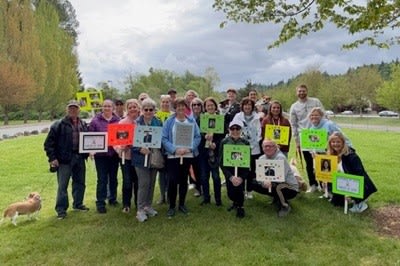Transoral Robotic Surgery (TORS)
Robotic Surgery That Improves Precision
Transoral robotic surgery (TORS) is a minimally invasive procedure that removes tumors in hard-to-reach areas of the mouth and throat — without any external incisions. Using advanced robotic tools, our expert surgeons can precisely target cancers near the base of the tongue and tonsils. Most patients return home quickly and recover faster than with traditional open surgery.

Treatment Overview
Robotic surgery like TORS uses advanced technology – a camera and robotic arms – to help your surgeon precisely locate and remove tumors, mostly in the head and neck, and repair nearby tissue. Because the instruments are inserted through your mouth, there are no external incisions like traditional surgery.
Once you are under general anesthesia, your surgeon inserts the instruments and uses high-definition images relayed from the camera to a nearby screen at a console. From there, the surgeon controls the robotic arms, which offer more stability and precision than human hands. That precision means more accurate tumor removal, less trauma to surrounding tissue, and faster healing.
Since there are no external incisions to remove the tumor, recovery is typically quicker, with less pain and no visible scarring. In some cases, your surgeon may also remove lymph nodes through a small incision in the neck.
What to Expect
At the Providence Swedish Cancer Institute, we’ll guide you through the planning stages of the TORS through to discharge, recovery, and future treatment if needed. Your care team is here to support your physical healing, emotional well-being, and personal goals, so you can move forward with confidence.
About a week before surgery, we'll schedule a pre-admission visit to:
- Assist with any remaining pre-surgical lab work or tests
- Review what will happen during your surgery
- Explain potential side effects
- Discuss medications and post-surgery care, including in-home help or equipment if needed
You'll receive information to prepare for your hospital admission. If you have any questions after your pre-admission appointment, you can reach out to your nurse or care coordinator, who will be happy to help.
While TORS is a minimally invasive surgery, it’s still an inpatient procedure. You’ll likely stay in the hospital for a few days to make sure your airway is clear, and you don’t have any complications. You might have a feeding tube for up to 3 weeks. It’s inserted through your nose to give you the nutrients you need. Your care team will advise you about how to recover at home and what to avoid, such as eating hard, crunchy foods that could hurt your throat, or doing strenuous activity.
Minimally invasive procedures like TORS have many benefits. Your surgeon has precise control when removing the tumor; the surgery time is generally shorter than traditional surgery, and recovery is easier. You’ll have a lower risk of complications, like infection, less pain, and the chances of needing tracheostomy or reconstructive surgery are also lower. All this may mean you can return to your regular activities sooner, with more peace of mind.
As with any surgery, there are risks, including:
- Infection
- Bleeding
- Choking
- Difficulty breathing
- Difficulty swallowing
- Difficulty speaking
- Tongue swelling
Your care team will talk with you about these risks, answer your questions, and help you make an informed decision that aligns with your goals.
You’ll have several follow-up appointments after your procedure for the first few weeks. This helps us monitor your healing and manage any complications. As time goes on, your appointments will be less frequent, but regular checkups are required so that we can continue to manage any of your ongoing treatment needs and watch for any signs of recurrence.
Services are also available to help you through every treatment stage.
Learn more about our supportive care services.
Frequently Asked Questions
Your surgeon will speak with you about whether TORS is a good option for you. It may not be recommended for you if your cancer has spread extensively, if you have anatomical differences in your throat that might make it hard for the surgeon to access the tumor, or if you have a condition that makes you bleed easily.
If your tumor was removed with clear margins, which means that they didn’t find any cancer cells beyond the surgical area, there’s a good chance that you won’t need more treatment after the procedure. You will still need to have follow-up appointments to make sure the cancer hasn’t returned. If the tumor is large or has spread, then you might need to have radiation therapy, chemotherapy, or both to treat it. Your surgeon will discuss this with you after your surgery.
Your care team will give you specific instructions on how to prepare for TORS. This will include instructions on how long you should fast (not eat or drink) before the procedure and if you should stop or continue taking certain medications, especially if you take blood thinners.
Your surgeon might need to remove a lymph node from your neck during TORS to check if the cancer has spread and, if so, what stage the cancer is at. The incision is usually 2 to 4 inches long and made along a natural skin fold to help minimize its appearance.
Your care team will give you discharge instructions, which will include warning signs to watch for and when to call if needed. In general, contact your care team right away if you have excessive bleeding or bleeding that won’t stop, any signs of infection (fever, swelling, redness, or discharge from the incision if you have one), or difficulty breathing or swallowing.
Your throat will likely be sore during healing, so it’s important to avoid any foods that could irritate it. Stick to soft foods and liquids and avoid hard or spicy foods until your care team says it’s ok to start eating them again. When drinking, don’t use a straw, as sucking could stress the healing tissues. Avoid smoking and alcohol, which can affect how well you heal, and anything that strains your body, like strenuous activity or lifting heavy objects.
We provide a full range of supportive care services to support you during and after your cancer treatment. Some of these services include:
- Art therapists
- Cancer rehabilitation (onco-physiatry)
- Care coordinators
- Genetic counseling (cancer geneticist)
- Health educators
- Medical massage (edema, lymphedema management)
- Music therapist
- Naturopaths
- Nutritionists
- Oncology nurses
- Social workers
- Speech and language pathology
We can also help with finances, food, transportation, and other challenges for eligible patients through our patient assistance fund.
See the full list of supportive care services.
Note: Some services are provided by local partners and vary based on location. Please contact your clinic for more information.
News & Info From Our Experts



